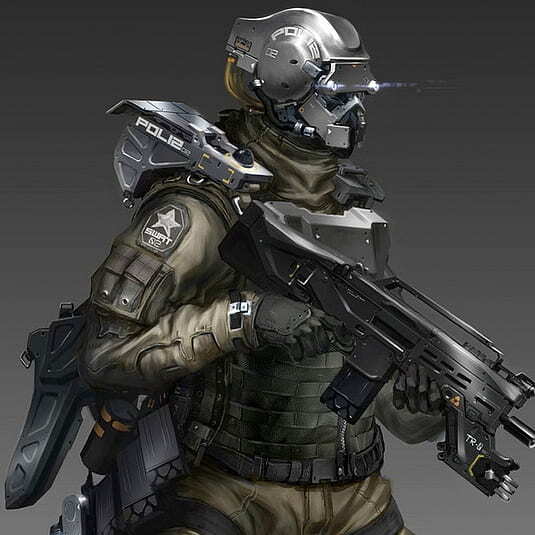I was reading a TTRPG article and some of the things it said just made me think of a lot of HFY stories and with why nonhuman species/races are often written the way they are here, and how they are juxtaposed with humans to get a HFY effect. It might be stuff I might have known in the back of my head, but it feels different to have it actually written out by someone else.
In a section about always-good and always-evil fantasy races…
All of which, by the by, highlights a very important thing about humans. Humans are uniquely and distinctly not always anything. They can rise and fall like no other race. And that makes them special and powerful and dangerous.
About fantasy races being more of a monoculture than having individuals…
I know it’s a big part of why fantastic worlds feel fantastic. If every member of every race is a unique and distinct individual, then everyone’s just people. Some people are green and some have funny ears and some get to reroll the d20 whenever it shows a 1, but they’re all just people. And thus there’s nothing wonderful or special or magical or terrible or frightening about anything that isn’t human.
Sorry, your elf isn’t special if he’s a unique individual. He’s just like everyone else.
This got a nice little subsection to itself:
Do you know why always evil humanoids are great fodder for stories? It’s because they show what happens when, on a societal level, humans don’t rise above their base instincts. They represent humans who failed to create social orders that curb their impulses toward evil. Orcs are humans whose societies are governed by anger, bitterness, and hatred. Hobgoblins are humans whose societies are all about military conquest and enslavement. Goblins are humans whose societies reward the greedy, the grasping, the cowardly, and the lazy. It’s nice to be able to explore this shit without having to use stripped-down caricatures of historical societies that require more nuance to understand than what a story or game can handle.
I’d also like to point out that even the good non-humans aren’t exactly aspirational in traditional fantasy. Take Tolkien’s elves or his ents for example. They were kind of crap. They did nothing, accomplished nothing, and changed nothing until spurred on by the normal, everyday, human people whom Frodo and Sam and Merry and Pippin — and to a lesser extent Aragorn — represented.
Because humans are awesome when they make themselves awesome. When they don’t, though, they’re just the worst.
And then…
Remember that all this shit’s really just to show how amazing the human capacity for self-determination really is. We don’t appreciate that because, well, we’re surrounded by humans in the real world. That’s why we need fantasy worlds to show us all sorts of creatures that lack the traits we humans take for granted.
I’m rereading Discworld right now, and this excellent post really highlights one of Pratchett’s big themes: That everyone is human, even is he’s a dwarf or a troll, and just as capable of noble sacrifice or petty malice as any other human.
I think that’s a big part of why SpacePaladin’s The Nature of Predators is so wildly popular. Because Isif reads as very human, as does Tarva, as do even the real villains of the story. The Arxur are dominated by… well, basically Nazism; the Venlil are dominated by fear and helplessness, but they’re both clearly victims of propaganda at the species level and trauma at the personal level.

